ENGL 5570(G) A: Studies in Fiction: The Graphic Novel — Syllabus
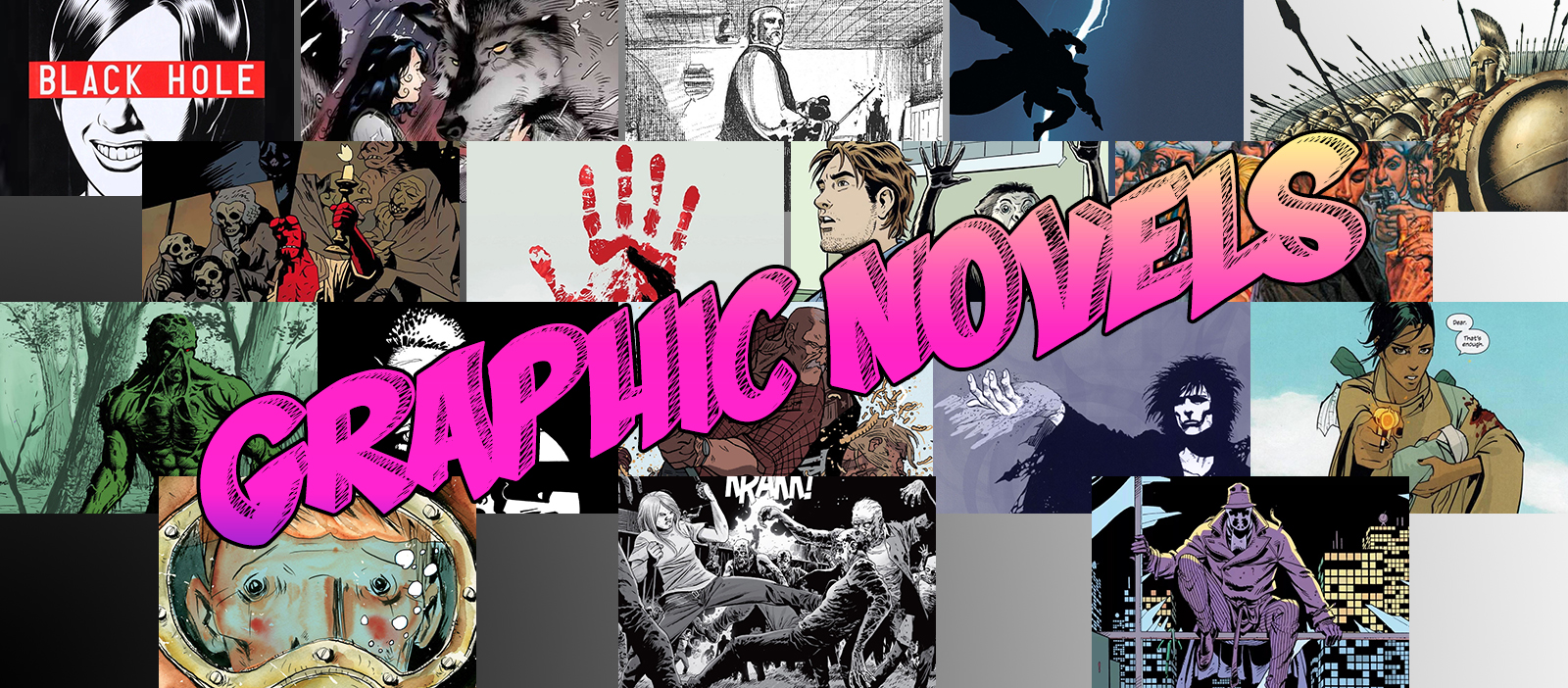
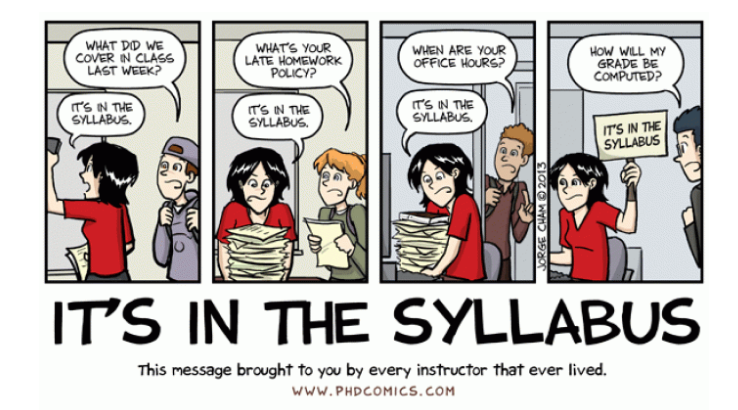
Course Information
ENGL 5570(G) A — Studies in Fiction: The Graphic Novel
A CRN: 15605
(G) A CRN: 15606
TR 2:00 pm - 3:15 pm
Newton Building 1114
Course Description
A specialized focus in the genre of fiction. Topics may vary. Course repeatable as topics vary. Prerequisite(s): ENGL 2100 or ENGL 2111 or ENGL 2112; or permission of the department chair.
Course Dates
- January 10: Class begins
- January 10-13: Drop-Add period
- March 7: Last day to withdraw with a "W"
- March 14-19: Spring Break
- May 2: Class ends
- May 3: Final exam
Learning Outcomes are the knowledge or skills you should gain (and be able to demonstrate) by the end of a particular course.
Career Readiness Competencies are core competencies developed by the National Association of Colleges and Employers (NACE). They address eight areas where employers agree that your abilities and skills signify your readiness to begin and/or extend your career. Below are the skills you'll have the opportunity to practice in this course.
Upon successful completion of this course, you should be able to:
- Recognize and analyze literary elements in a text.
- Situate and interpret texts in their historical, cultural, and literary contexts.
- Create well-developed and organized essays with clear and precise prose, presenting sustained arguments.
These outcomes are reinforced for undergraduate students.
Upon successful completion of this course, you should be able to:
- Demonstrate an ability to situate and interpret texts in their historical and cultural contexts, using appropriate literary criticism and theory in discussing texts, presenting different critical stances when necessary.
- Analyze and explicate the underlying structures, thematic concerns, and literary devices employed in texts, through various critical lenses.
- Produce clear and precise written work which adheres to professional scholarly standards for grammar, mechanics, and usage.
- Plan and execute an original research agenda which results in work of a publishable level, presented to an audience of scholars.
These outcomes are reinforced for graduate students.
| Self-Development |
|
| Communication |
|
| Critical Thinking |
|
| Equity and Inclusion |
|
| Leadership |
|
| Professionalism |
|
| Teamwork |
|
| Technology |
|
These career readiness skills will serve you well no matter what your next steps after graduation might be. Find out more about them on this page of the NACE site.
Required Material
You'll need to purchase these required books for this class:
Atwood, Margaret, and Nault, Renee. The Handmaid's Tale: The Graphic Novel. Knopf Doubleday, 2019. 9780385539241
Moon, Fábio, and Bá, Gabriel. Daytripper. Penguin Random House, 2011. 9781401229696
Moore, Alan, and Gibbons, Dave. Watchmen. 2019 edition. DC Comics, 2019. 9781779501127
Sacco, Joe. Paying the Land. Henry Holt & Company, 2020. 9781627799034
Stevenson, Noelle. Nimona. HarperCollins, 2015. 9780062278227
I also strongly recommend that you purchase this book:
McCloud, Scott. Understanding Comics. Harper Publishing, 1994. 9780060976255
I'll also be providing some resources for you — most notably The English Major’s Cheat Sheet for Reading Comics and Graphic Novels — which is available on the course site in Folio.
Course Structure
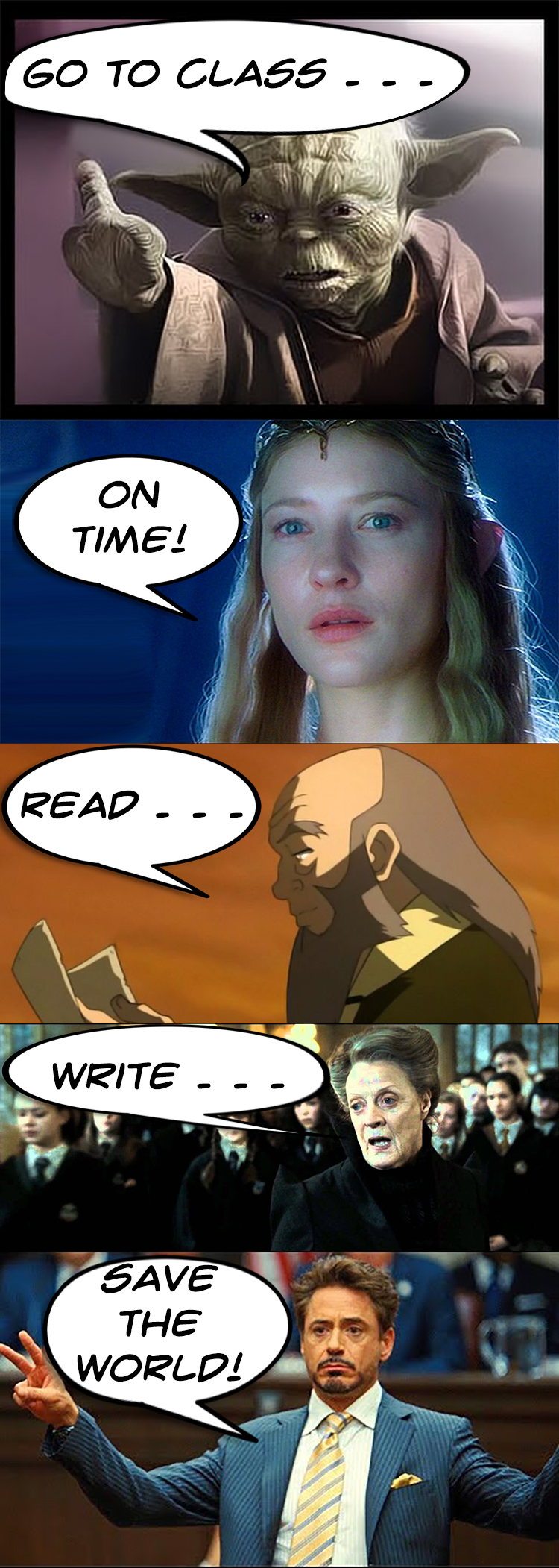
General
This course will introduce you to the study of the hybrid genre of graphic novels. So we'll be covering matters like:
- visual literacy;
- visual rhetoric;
- the interplay of text and image;
- discipline- and genre-specific terminology; and
- frames and contexts for understanding images and texts.
Apparatus and Application
The course is organized so that we will spend the first couple of weeks getting our feet under us by familiarizing ourselves with the methodology used to study comics and graphic novels. You're already familiar with most of the methods we use to analyze texts; the process for graphic novels is a bit more complicated. We'll be borrowing ideas, processes, and language from film studies, art history, graphic design, psychology, and media studies to work with this genre. This is the apparatus.
After we have thus girded our loins, we'll address the texts at hand. You'll demonstrate your analytic skill and ability to communicate effectively through two exams and two short papers. Graduate students will create a longer researched paper, and will present a version of that paper to the class. This is the application of the apparatus.
Readings
I usually begin these classes with a charge through McCloud's Understanding Comics. But that work has a lot of material that is extraneous to our purpose here. So we'll walk through The English Major’s Cheat Sheet for Reading Comics and Graphic Novels, becoming familiar with visual rhetoric and practicing the techniques necessary for thinking and writing about graphic novels.
Papers
Undergraduates will write two mid-length papers for this class. Graduate students will write one of those papers and one longer work which they'll edit down to presentation length and present in class. You'll submit your papers via a dropbox in Folio, where they'll go through TurnItIn to check for academic integrity. My comments on those papers will be available to you through the Grademark view in the TurnItIn section (click on your TurnItIn score to access this).
Exams
We'll have two exams, one halfway through the course and one at the end of the course. These will contain some practical questions (can you use the vocabulary of visual analysis?), some short answer questions (can you differentiate between styles?), and some essay questions (can you apply some of the fundamental concepts we're using to a particular piece?).
.Course Expectations
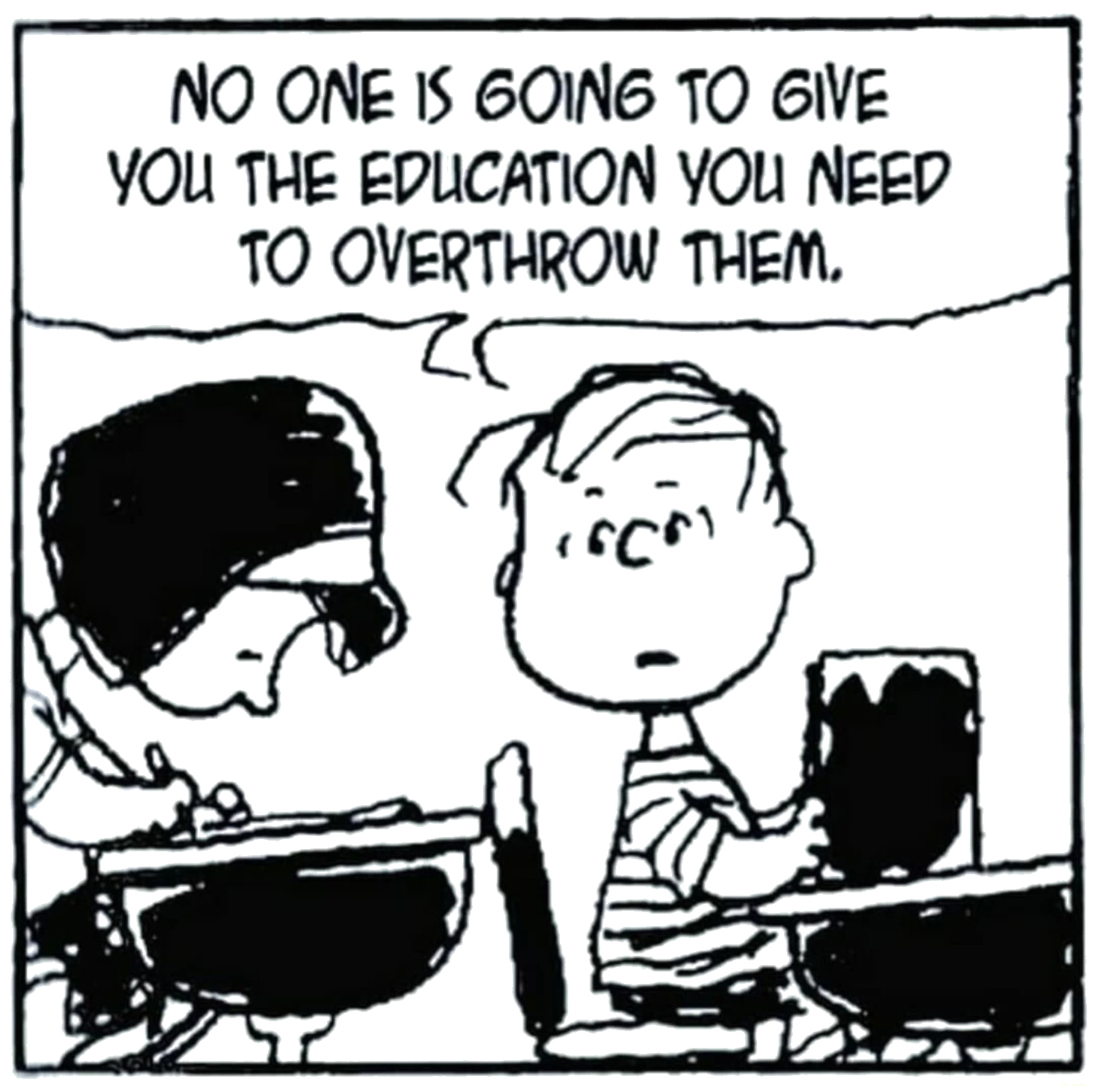
Learning Commitment
The "Carnegie Unit" is how universities define credit hours and categorize the amount of work students do for each credit hour. Each credit requires fifteen "contact hours" which are essentially the hours you spend in class during the semester. And each contact hour requires two hours of outside work, or time devoted to the class that doesn't happen in the class. This is a three-credit course, with 45 contact hours. Those 45 contact hours necessitate at least 90 hours of out-of-class work on your part. That's at least 135 hours committed for each three-credit class that you take.
If you're not a self-starter, or you have problems with deadlines, or you just don't think you can commit to this level of work, you should probably look for another section of this class.
Academic Integrity

I expect that you will conduct yourself within the guidelines of the Honor System. All academic work should be completed with the high level of honesty and integrity that this University demands.
I do not tolerate academic dishonesty. Beyond the moral implications, I find it insulting. All instances of plagiarism will be reported to the Office of Student Conduct. Any instance will result in an F in the course and possibly further sanctions. Plagiarism is presenting someone else's work as your own without giving them credit. Someone else is defined as anyone other than you: another student, a friend, relative, a source on the Internet, articles or books. And work is defined as ideas as well as language. So taking someone else's ideas and putting them in your own words—or using someone else's words to express your ideas—is plagiarism. And, in the case of friends and family, it doesn't matter if they give you permission.
A note about group work: I encourage you to read and discuss these texts together outside of class. It is, in fact, the core of our endeavor, to hone our own ideas on these texts through discussions with others. You should also discuss your writing with your classmates, as hearing a number of ideas will help you create and polish your own. However, this does not mean that you should write your papers as a group. While discussion is obviously a group activity, writing is a solitary one, and should be treated as such. Any attempt to subvert this would be an instance of academic dishonesty.
The University has a more extensive definition of Academic Dishonesty (from the Student Conduct Code):
CHEATING
- submitting material that is not yours as part of your course performance;
- using information or devices that are not allowed by the faculty;
- obtaining and/or using unauthorized materials;
- fabricating information, research, and/or results;
- violating procedures prescribed to protect the integrity of an assignment, test, or other evaluation;
- collaborating with others on assignments without the faculty's consent;
- cooperating with and/or helping another student to cheat;
- demonstrating any other forms of dishonest behavior.
PLAGIARISM
- directly quoting the words of others without using quotation marks or indented format to identify them;
- using sources of information (published or unpublished) without identifying them;
- paraphrasing materials or ideas without identifying the source;
- Self-plagiarism: re-submitting work previously submitted without explicit approval from the instructor;
- unacknowledged use of materials prepared by another person or agency engaged in the selling of term papers or other academic material.
Should you wish to pursue a case of academic dishonesty through the Office of Student Conduct, I will speak at your hearing and send a copy of this syllabus along with the documents in question to the Hearing Officer, so a plea of ignorance or non-malicious intent on your part will not be valid.
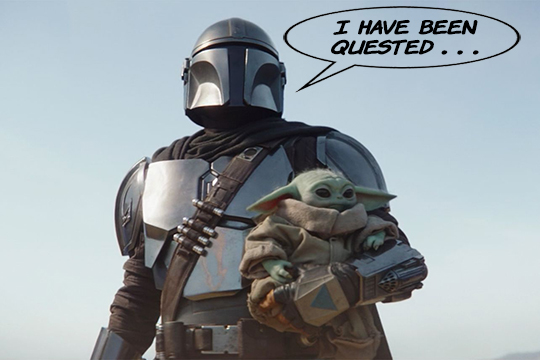
Course Schedule
| DATE | CLASS ACTIVITY | DUE |
|---|---|---|
1/11 |
Introduction to the Course |
|
1/13 |
The English Major’s Cheat Sheet for Reading Comics and Graphic Novels |
|
1/18 |
The English Major’s Cheat Sheet for Reading Comics and Graphic Novels |
|
1/20 |
The English Major’s Cheat Sheet for Reading Comics and Graphic Novels |
|
1/25 |
The Handmaid's Tale |
|
1/27 |
The Handmaid's Tale |
|
2/1 |
The Handmaid's Tale |
|
2/3 |
The Handmaid's Tale |
|
2/8 |
Watchmen |
|
2/10 |
Watchmen |
|
2/15 |
Watchmen |
|
2/17 |
Watchmen |
|
2/22 |
Watchmen |
|
2/24 |
Watchmen |
|
3/1 |
Watchmen |
UG & Grad: Page Analysis Paper 1 |
3/3 |
EXAM 1 |
|
3/8 |
Daytripper |
|
3/10 |
Daytripper |
|
3/22 |
Daytripper |
|
3/24 |
Daytripper |
|
3/29 |
Paying the Land |
|
3/31 |
Paying the Land |
|
4/5 |
Paying the Land |
|
4/7 |
Paying the Land |
|
4/12 |
Paying the Land |
|
4/14 |
Paying the Land |
|
4/19 |
Nimona |
|
4/21 |
Nimona |
Grad: Theoretical Paper |
4/26 |
Nimona |
UG: Page Analysis Paper 2 |
4/28 |
Graduate Student Presentations |
Grad: Presentation Version |
5/3 |
3:00 pm: EXAM 2 |
Instructor

Dr. Pellegrino
I'm Dr. Joe Pellegrino, an Associate Professor in the Literature department. I teach lots of different classes. My specialties are Irish literature and postcolonial literature, so I end up doing classes that don't fit into the standard Brit Lit/American Lit model: Irish lit, African lit, etc. For instance, this semester I'm also teaching a course on mythology. Basically, if other people in my department can teach it, I don't teach it.
It seems like I went to school forever, and went to lots of different schools: Duquesne University, St, Louis University, Mannes College of Music, The New England Conservatory, and UNC-Chapel Hill, which is where I did my last degree. I've also taught at a lot of schools: Duquesne, UNC, Eastern Kentucky University, University of South Carolina-Upstate, Greenville Tech, Converse College, and here at GS. I've got some experience in online education; I was a University Director for the (short-lived) Kentucky Commonwealth Virtual University, and have taught online classes for over 20 years now.
Professionally, I also edit two international journals, The Journal of Global Postcolonial Studies and The International Journal for the Scholarship of Teaching and Learning. I'm interested in a number of fields, but most of my publications are either on Irish studies, postcolonial lit, or teaching.
I have only one item on my bucket list: to see the Northern Lights. One day I'll get there, but in the meantime I'm raising two daughters, making heirloom furniture (pretty much a middle-aged guy cliché), keeping up with new technology, wishing I could spend more time doing music, and trying to keep my head above water.
Contact Information
- Email: jpellegrino@georgiasouthern.edu
- Phone: 912.478.5853
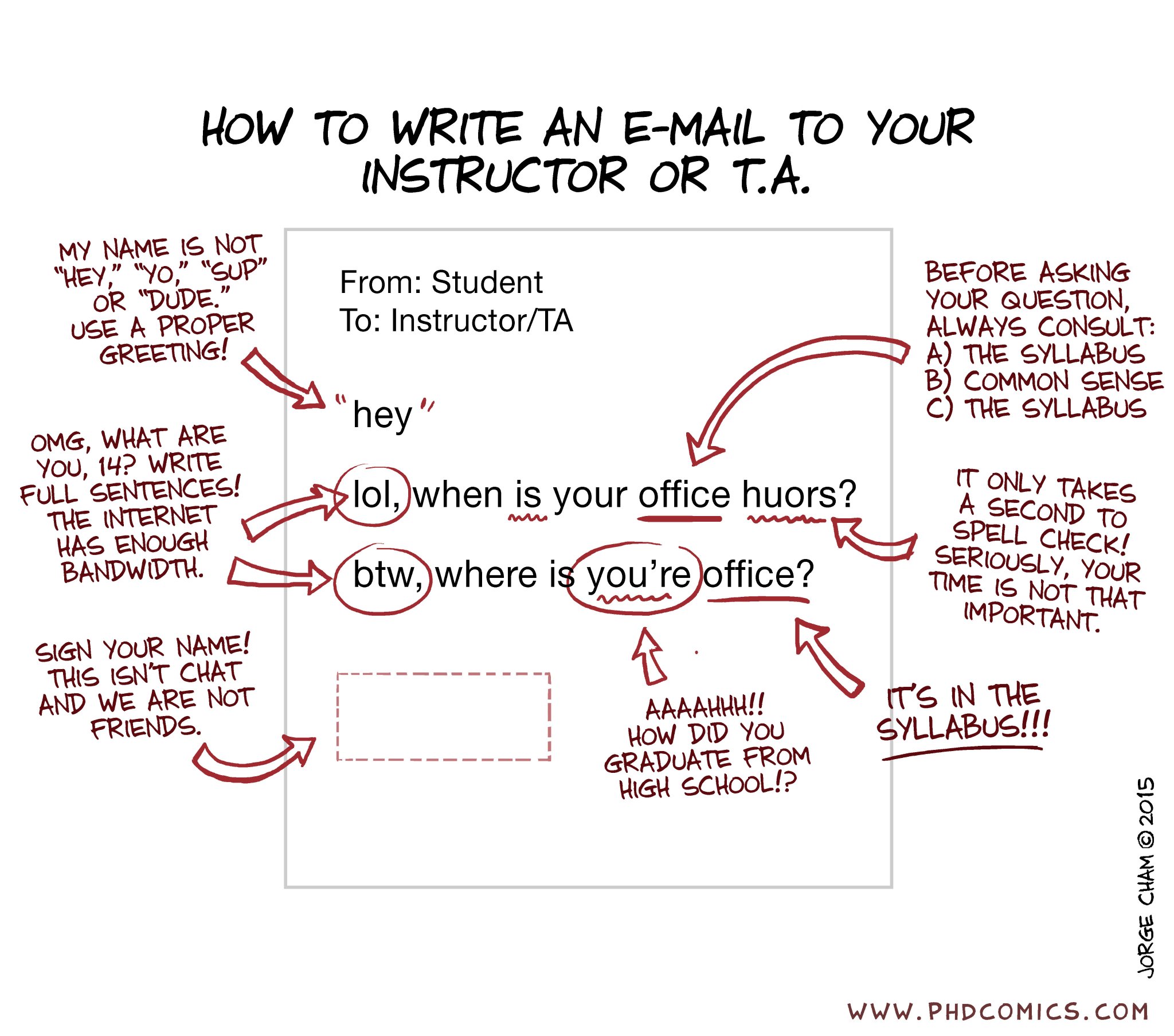
A WORD ABOUT EMAIL
Please don't hesitate to post to me if you have a question about any of the readings, especially if you're struggling to figure them out. But please think twice about posting questions where the answer is in this syllabus. If you do, I have two options for a reply: I can copy and paste material from the syllabus or schedule just for you, but that's redundant, since you already have access to the material. Or I can reply with something like "check the syllabus" or "check the schedule," which you should already know to do. Since neither of those are satisfactory, if you ask a question that is already answered in the syllabus or in the schedule, I won't be replying at all. So if you don't hear back from me, you should know that the answer to your question is in this document.
CLASS POLICIES
Writing Proficiency
If you need additional work on the surface features of your writing, I will require you to schedule sessions at the Writing Center in order to pass the course. If you're unable to get to campus in order to meet with the Writing Center staff, you'll have to provide documentation that you availed yourself of some other tutoring, editing, or proofreading service.
Course Work
All electronically-submitted assignments will be placed in the appropriate dropbox section or discussion forum of the Learning Management System (Folio).
I DO NOT ACCEPT LATE ASSIGNMENTS. NO EXCEPTIONS, NO EXCUSES. A late assignment is any work that is not turned in during the class period in which it is due. This means that you must anticipate any problems that will occur. In other words, a computer / printer / drive / car / arm being broken at the last minute is not an excuse. To avoid last-minute catastrophes (which always occur), DO NOT WAIT UNTIL THE LAST MINUTE TO DO YOUR WORK.
Accessibility Accommodation
In compliance with the Americans with Disabilities Act (ADA), this course will honor requests for reasonable accommodations made by individuals with disabilities or demonstrating appropriate need for learning environment adjustments. Students must self-disclose their disability to the Student Accessibility Resource Center (SARC) before academic accommodations can be implemented.
For additional information, please call the SARC office at (912) 478-1566 on the Statesboro campus, or at (912) 344-2572 on the Armstrong and Liberty campuses.
Attendance
The University Undergraduate Catalog states unequivocally: “Students are expected to attend all classes.” Attendance in this class is not optional. Attending class means that you are present and attentive for the whole class period and that you are prepared for the day’s lesson. If you miss a class, regardless of the excuse, it will be counted as an absence (unless you are missing for a University-sanctioned reason). You do not want me in the position of deciding whose excuse is valid and whose isn’t, so I don’t need any documentation for your absences. If you’re within the limit it is not necessary, and after the limit it will not matter.
But life gets complicated. So you'll have a free pass to miss almost 15% of our classes. I certainly don't encourage you to do so, but I'll give you two weeks of absences (that's four classes) before you begin to negatively affect your grade for the class. If you are absent more than four times, regardless of the excuse, your final grade will be lowered by 2.5% for every subsequent absence. If you have to miss more than your allotted absences, there is obviously something going on in your life which does not allow you to pursue this degree wholeheartedly, so you should consider withdrawal. Keep this in mind when using your absences—that’s ALL you will be allowed. I do not accept ANY excuse after that.
By now you recognize that arriving on time for class is, at its core, a sign of respect for your classmates and your professor. Tardiness, therefore, is a statement saying that your time is more important than anyone else’s. I will strike a blow for the group by counting every instance of tardiness as 1/3 of an absence. So, if you’re doing the math, you can be tardy several times without any consequences, save the collective disdain for your actions. And yes, your tardiness works in conjunction with your absences, so a combination of the two will push you toward the negative consequences outlined above.
Contingencies
Given the current state of the Covid-19 pandemic, and the predictions for a significant surge in cases during this semester, I've got a couple of plans in place:
- If the institution shuts down:
We will move completely to Zoom sessions for our classes, and exams will be administered through Folio. Exams will be available in Folio for the entire day on which they're scheduled. You can take the exam at any time during that 24-hour period. Once you open the exam, you'll have the usual amount of time to complete it (75 minutes for Exam 1, 120 minutes for Exam 2). All other course activities will continue as planned. Class discussions may be a bit more forced, but we'll muddle through. - If you are under quarantine:
I can't grant you any exemption to the attendance policy unless I receive a report from the GS CARES Team about your status. You can't just email me to say that you think you might have the virus and are self-isolating in order to minimize the chance of infecting others. That means that if you think you might have been exposed, or if you have tested positive, you must complete a COVID-19 Health Reporting Form, which can be found in the COVID-19 Information & Resources section of your MyGeorgiaSouthern page.
If you do have a CARES report and must self-isolate, it'll be like this class did not exist for you during your period of isolation. So those absences will not count against your total absences for the class (see the Attendance policy above), and you will neither gain nor lose points for the class discussions you missed. If a paper is due during your quarantine, you'll have an extension until you return to class. If you miss either exam, we'll work that out on a case-by-case basis.
Writing Prompts
Page Analysis Papers Prompt
For these papers, you'll select a single page from one of the graphic novels we have read for the course, and illustrate how that page develops or contributes to a central theme — or the relationship between themes — of that work. The thesis of your paper should be specific about the theme(s) you see at work on the page. Then the body of your paper should illuminate how the page develops the theme(s), and how the page connects to the work as a whole.
Undergraduates will get two bites of this apple; your first paper will address a page from either The Handmaid's Tale or Watchmen. Your second paper will address a page from either Daytripper, Paying the Land, or Nimona.
Each paper should be somewhere between 1,000 and 1,500 words, not counting your Works Cited page. You should format these in accordance with MLA 9.
Your choice of a page to write on is crucial. Choose a page that offers plenty of material for you to interpret. Consider how the page contributes to the theme or themes you see at work locally on the page, and globally in the work as a whole. Focus on at least three elements from the section on "The Structural Frame" in The English Major’s Cheat Sheet for Reading Comics and Graphic Novels:
- Composition
- Framing
◦ Shot
◦ POV
◦ Viewing angle - Salience
- Vectors/Lines
- Foreground/background
- Gaze
- Body language
- Color and lighting
- Contrast
- Symbolism/icons
Your conclusion should address the overall design of the page: how does the artist use all of the above elements to advance the themes of the story?
You should incorporate the work of other scholars into these papers. That means, usually, material that has been peer-reviewed. You may consult online summaries or analyses from sites like Shmoop, SparkNotes, or Wikipedia, and you should most definitely work with The English Major's Cheat Sheet . . ., but they will not count as scholarly sources for the purposes of these assignments. I'm not going to mandate a crazy number of sources for you; I would think at least two might suffice, but hearing from more voices is always a good thing. Check the journals in the list of resources for the study of comics and graphic novels (available in Folio) for a good place to start your research.
Graduate Student Paper/Presentation Prompt
Graduate students will be writing the first of the short papers above, but, in lieu of the second paper, you'll be writing something more global, and presenting a shortened version of that paper to the class.
This second paper asks you to apply an appropriate theoretical stance to any of the texts we have covered in this class. While some critical lenses may be more appropriate for particular works, all are fair game. A semiotic analysis of any of these texts would certainly work, but I can see you successfully using psychological criticism, Cultural Studies, Postcolonial theory, Feminist theory, Deconstruction, Ecocriticism, or New Historicism, to name just a few.
What I'm NOT looking for is a character study, so anything like a forensic psychological workup on Rorshach from Watchmen won't cut it. Rather, your paper should illustrate how reading Text A through Critical Lens B offers us a richer understanding and appreciation of that text.
You should demonstrate how the application of your chosen lens might work by walking us through at least three different textual sites using that lens. The more central those sites are, the more you justify your choice of lens, and the stronger your argument becomes.
Your use of sources should be about even between the theory and the text. That is, you shouldn't have five sources explaining what a subaltern is and then just one source addressing the primary material. If anything, you should err in the opposite direction.
Your initial paper should be between 2,500 and 3,000 words, not counting your Works Cited.
Once you've submitted your initial paper, you should then revise it for a 10-minute in-class presentation. Since we assume two minutes per double-spaced page when reading aloud, you'll be chopping your original work into half for the class. When you present you should have an all-new paper to read from, not just a version of your original with lines and paragraphs crossed out.
You can avail yourself of the projector for your presentation, but I would suggest, rather than making a .ppt with bulleted text, that you only display the sites you're analyzing.
Grading
Essay Rubric
Your papers for this class will be evaluated with the appropriate elements of this rubric:
|
SLO |
4 |
3 |
2 |
1 |
|
1. Recognize and analyze the literary elements in a text. |
||||
|
|
Uses and applies literary terms & elements (such as plot, characters, setting, tone, style, point of view, narrative technique, structure, theme, etc.) accurately and clearly, contributing to a richer understanding of the text(s). |
Accurately addresses textual literary terms & elements (such as plot, characters, setting, tone, style, point of view, narrative technique, structure, theme, etc.) Their use does not add to an understanding of the text(s). |
Addresses textual literary terms & elements (plot, characters, setting, tone, style, point of view, narrative technique, structure, theme, etc.), with some lapses or omissions. |
Does not use literary terms & elements, or does not use them accurately. |
|
2. Situate and interpret texts in their historical, cultural, and literary contexts. |
||||
|
|
Presents the text(s) as representative of its culture, historical moment, cultural milieu, or literary period. Identifies and explains aspects of the text(s) which reflect or shape the dimensions of the culture in which it was created. |
Attempts to interpret the text(s) in relation to a particular historical moment, cultural milieu, or literary period. May not identify all aspects of the text(s) that justify such a reading. |
Attempts to make a point about history, society, or a literary period using the text(s) as evidence. Does not identify aspects of the text(s) that justify such a reading. |
Does not present the text(s) in relation to a historical moment, cultural milieu, or literary period. |
|
3a. Create a well-developed and organized paper with clear and precise prose, presenting a sustained argument that uses discipline-specific vocabulary and analytic techniques. |
||||
|
Thesis / Position |
Thesis is focused; intent is obvious. Positions are insightful and clear. |
Thesis is general; intent is evident. Positions are sound and understandable. |
Thesis is general or vague. Positions are sound and understandable. |
Thesis may be absent or intent is unclear. Lacks a position on topics. |
|
Structure |
Overall structure complements and completes content. |
Overall structure is appropriate for the content. |
Overall structure is generally adequate for the content. |
Overall unity and coherence are flawed. |
|
Style |
Demonstrates overall sophisticated prose, syntax, and clarity. |
Demonstrates moderate strength in terms of prose, syntax, and clarity. |
Demonstrates acceptable if inconsistent, facility in terms of prose, syntax, and clarity. |
Demonstrates unsophisticated prose, syntax, and clarity |
|
Grammar / Errors |
Grammatical structures are well-chosen. No errors detract from meaning. |
Grammatical structures carry the meaning forward, although readers notice occasional error(s). |
Grammatical structures detract from the meaning. |
Grammar errors are so obtrusive that readers are seriously distracted. |
|
3b. Create a well-developed and organized paper with clear and precise prose, presenting a sustained argument that applies and/or incorporates appropriate literary criticism and/or theory. |
||||
|
Critical lens |
Demonstrates mastery of the literary perspective applied. |
Demonstrates a solid understanding of the literary perspective applied. |
Demonstrates some understanding of the literary perspective applied. |
Demonstrates little understanding of the literary perspective applied. |
|
Relevance of sources |
Sources are thoroughly examined, explained, and clearly relevant to the argument. |
Synthesizes or explains material from secondary sources, with occasional lapses. |
Most material from secondary sources is not synthesized or explained. |
Almost all material from secondary sources is insufficiently synthesized or explained. |
|
Attribution of sources |
Sources are clearly attributed with accurate documentation. |
Sources are attributed, but some documentation may be inaccurate. |
Some sources are not attributed, or their documentation is inaccurate. |
Most sources are either not attributed or their documentation is inaccurate. |
|
Essays plagiarized or not written on the essay assignment will receive a score of zero |
||||
Questions I ask while grading
For each sentence in your paper, I ask the following questions:
- What are you saying? At a basic level, I’m trying to decode the meaning of each sentence. If I cannot understand what you’re trying to say, everything that follows is problematic. If your sentence is confused, convoluted, or contradictory, you make it difficult, or even impossible, for me to answer this basic question.
- Is what you’re saying accurate? Does this sentence demonstrate that you understand the text or the critic you’re addressing? For instance, if you’re summarizing someone else’s argument, I need to assess if you’re being true to the original author's intent. In your response, I’m assessing your evidence and examples.
- Is what you’re saying well-expressed grammatically and mechanically? This assumes that your grammar and mechanics aren’t so bad that I’ve been stymied back up at Question #1.
- Does the writing have appropriate flow, in that each idea links up with the one previously and the one to follow in a way that meets audience needs, attitudes, and knowledge?
If I can answer all four of these questions positively for every sentence, you’re doing well. But when the answer is no, complications ensue. If I can’t understand what you’re saying, I have no way to engage with your ideas, and so I have additional questions.:
- Do you not understand the original text you’re addressing?
- Do you understand the original text, but your writing leaves a gap between that understanding and what is written on the page?
"Sticking" your grade
Like gymnasts who "stick" their landings, you'll have to "stick" your grade on each paper. That is, the grade you'll see on a paper when I return it to you is not really a grade until you resolve every comment I made on the paper. So if your paper is marked with an "85," that grade won't be registered until you submit a new version of the paper that corrects every error, answers every question, and addresses every comment. Until you do that, your grade for the paper remains a "0". You're rewarded for engaging in the editing process.
Of course, if you do a sufficient amount of editing and proofreading before you submit your paper, you'll have minimal work to do on the back end (and will score much higher on your initial submission). So you can do the hard work up front, or you can do it at the end, but you'll find that the latter choice offers very few rewards.
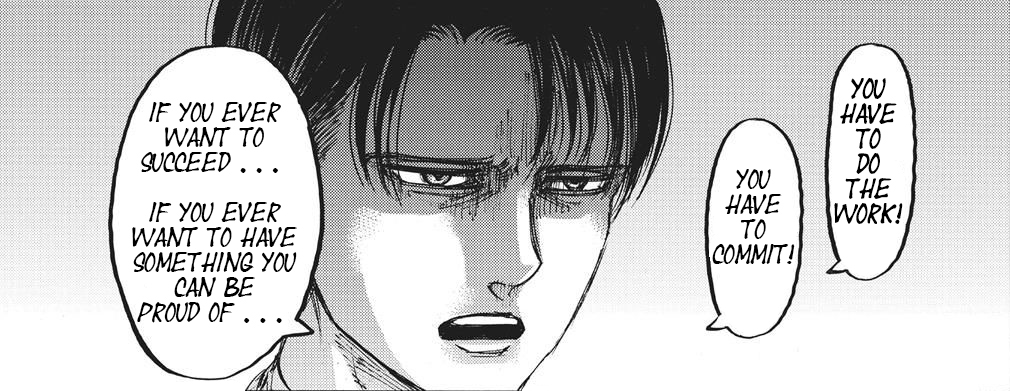
Evaluation
|
|
||||||||||||||||||||||||||||||||||||||